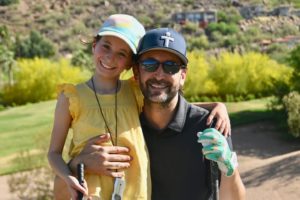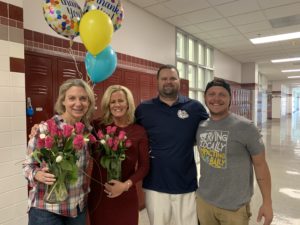Lindsay Palmer, Program Director
Of all twelve Teach One to Lead One sessions that we lead with students, the session on Compassion is one of my favorites. The two components of compassion that we teach are:
Understanding + Responsiveness
During the session, we watch video clips and perform a variety of activities with kids to help them realize that even their fellow classmates are experiencing challenges that they may not have known. We then talk about how “knowing” is not enough. Once a need is identified, to be compassionate means to do something about that need. Respond and help provide a solution.
It’s a great session. It is tough and forces students to be vulnerable. Kids take it seriously and everyone gets a lot out of it.
Except for that one kid.
Ugh.
He’s always so difficult.
I don’t know why she’s always trying to sabotage our activities and never wants to pay attention.
He’s always rude or sarcastic and refuses to participate appropriately.
She’s so disrespectful.
From my own experiences in leading this particular session, I find it ultimately ironic how easy it can be to simultaneously instruct students on the importance of practicing empathy and compassion, while subconsciously refusing to do so myself.
A critical, yet extremely difficult part of the role of a mentor is taking the time to identify disruptive student behavior as a symptom of a larger issue, rather than the issue itself.
Just as we help our students understand that the kid sitting alone at the lunch table has a need for companionship, or a homeless person has a need for shelter and warm socks, we need to be able to see that the boisterous and disrespectful kid in class may also have a need for love, attention, consistency, or boundaries.
Clearly, this is easier said than done. It is a simpler solution to ask that a student be removed from a session than it is to have a conversation with that student and try to identify what needs are not being met. It is easier for us as adults to have our egos bruised when a student is being troublesome than it is to find creative ways to give a student the individual attention he/she craves during the 1-hour per week that we see them.
Russell Barkley, a clinical psychologist and professor at the Medical University of South Carolina summed it up best when he said,
“The kids who need the most love will often ask for it in the most unloving ways”.
As we enter this new semester of Teach One to Lead One, I hope that we will intentionally work on our own ability to be empathetic and compassionate with those students that test us the most.






